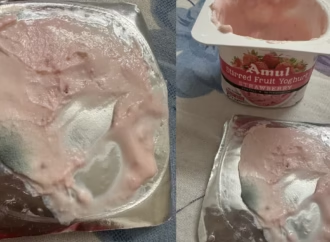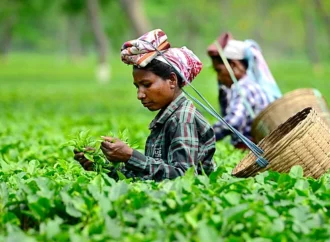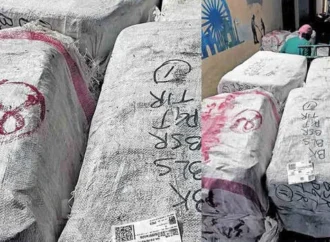Report
A viral video exposes the unhygienic process of making rewdi, a popular Indian sweet, triggering widespread outrage on social media. The footage, filmed in Agra, shows men preparing the sweets in a filthy room while blatantly disregarding cleanliness and food safety standards.
Unhygienic Conditions Revealed
In the video, a man kneads dough and sugar syrup with sesame seeds (teel) on a dirty floor, then mixes the concoction further on a grimy wall to firm it up. Disturbingly, the men handle the sweets without gloves, ignoring basic hygiene protocols. Viewers have expressed serious concerns about food safety due to the shocking conditions in which the sweets are prepared.
Public Reaction and Disgust
The video quickly went viral, sparking a flood of reactions from disgusted viewers. Many posted vomiting emojis, while others made sarcastic remarks. One user humorously quipped, “Needs more foot dust,” while another commented, “So many different flavours: dirt, feet, nails, sweat, wall paint, cement. Yummy.” Several viewers also voiced concerns about cross-contamination, with one asking, “I wonder where all that wall paint went?”
What is Rewdi?
Rewdi is a traditional Indian sweet made from sugar, jaggery, and sesame seeds, often enjoyed during festivals like Makar Sankranti. To prepare it, cooks boil sugar, or jaggery syrup and mix it with sesame seeds. They then allow the mixture to cool and harden into bite-sized pieces. Known for its rich flavour and high energy content, rewdi enjoys particular popularity in northern India.
Concerns Over Food Safety in Informal Settings
Although the exact location and identities of those involved remain unknown, the video has highlighted significant concerns over the lack of oversight in food production, particularly in informal settings. The footage underscores the potential health risks linked to unsafe food handling and calls for stronger food safety regulations in such environments.
This incident serves as a stark reminder of the importance of enforcing hygiene standards in all food preparation spaces, especially those operating outside of formal establishments, to safeguard consumers’ health and safety.
Source: Hindustan Times
 Food Manifest
Food Manifest 


















